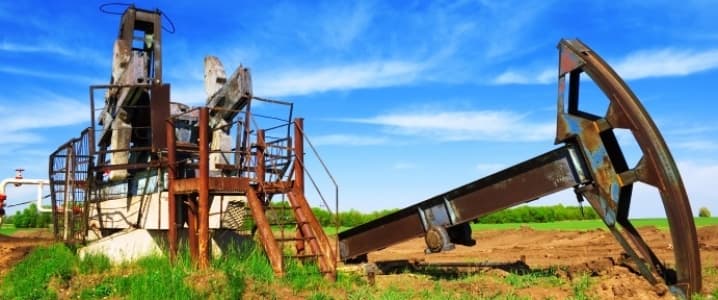The bankruptcy of a small Canadian oil and gas company in 2015 and the following creditor claims have created a legal dispute over who should pay for abandoned wells and whether creditors should have priority over environmental cleanup in case of energy bankruptcies. The oil and gas industry is closely watching the lawsuit—which ended up at Canada’s Supreme Court last month—because it could set precedents for orphan wells remediation and who will pick up the tab.
The Supreme Court is likely to hear the case because a small company bankruptcy has become a major issue of federal insolvency laws and provincial energy regulations, according to legal experts.
The legal fight stemmed from the bankruptcy of Redwater Energy Corp in 2015. In the receivership proceedings that followed, the receiver, Grant Thornton, disclaimed the non-producing wells, and wanted to sell producing profitable wells to pay to the creditors, leaving the non-profitable wells to the industry-funded Orphan Well Association to clean up. The Alberta Energy Regulator (AER), however, argued that it is the energy companies that must pay for abandoned wells, and receivers should sell producing wells to pay for remediation of non-producing wells.
A court in Alberta ruled in favor of the receiver in May 2016, allowing it to disclaim certain wells, and denying the AER a proposed order to compel Grant Thornton to fulfill its statutory obligations as a licensee in relation to the abandonment, reclamation, and remediation of all the Redwater Energy licensed properties.
The AER appealed the decision at the Alberta Court of Appeal, which upheld the lower court’s ruling in April 2017.
Legal experts believe that the decision is good news for lenders and loans extended to the oil and gas industry because banks would feel protected from liabilities of non-producing wells in case their debtors go belly up.
At the time, Kathleen Shannon, a lawyer with Field Law, told CBCNews:
“Lenders will still feel secure in their creditor positions, so they’re likely to continue lending to the oil and gas industry. If the decision had been reversed, there would have been more hesitancy from financial institutions.”
Shortly after the ruling, the AER said that it would be seeking leave to appeal the latest court decision to the Supreme Court of Canada. The regulator argued that the decision “fails to recognize that the AER is not acting as a creditor when it takes steps to ensure that the public is protected from the environmental costs associated with suspension, abandonment, and reclamation when companies enter into insolvency proceedings.”
Related: Oil Prices Slip Despite Modest Draw In Crude Inventories
In early July, the AER and the Orphan Well Association filed for leave to appeal the Redwater decision to the Supreme Court of Canada.
Since the first court ruling in the case in May 2016, around 1,000 AER-licensed sites have been disclaimed with estimated liabilities of more than US$44.6 million (C$56 million), the energy regulator said. In addition, the Orphan Well Association’s inventory has more than doubled from almost 1,200 to more than 3,200 wells, according to the AER.
The disclaimed non-producing wells and the orphan well numbers have jumped since the oil prices started crashing in late 2014, forcing many oil and gas producers into receivership, bankruptcy, and restructuring.
“Disclaiming unprofitable sites allows a company to reap the benefits of producing Alberta’s natural resources while avoiding the costs to repair the land, permanently impacting the environment, the economy, and the safety of Albertans,” the AER argues.
Since the case has become a major issue and since British Columbia and Saskatchewan have provided materials in support of the appeal, the Supreme Court will likely hear the case because it could be precedent-setting not only for Alberta.
“It does have ramifications for other provinces. That makes me think the Supreme Court will hear it,” Kyle Kashuba, a lawyer at Torys LLP restructuring practice, told Bloomberg.
If the Supreme Court hears the case, and if it sides with the previous court rulings, the AER may have to increase the orphan levy it charges from well licensees. But if Canada’s top court reverts the decision and potentially saddles lenders with liabilities of bankrupt companies, banks may start to price in that risk and charge more for extending loans to the oil industry.
By Tsvetana Paraskova for Oilprice.com
More Top Reads From Oilprice.com:
- Did Google Just Tackle The Biggest Problem In Energy?
- Is The Mafia Helping ISIS Smuggle Oil Into Italy?
- Will Sanctions On Russia Push The EU To US Energy?


















